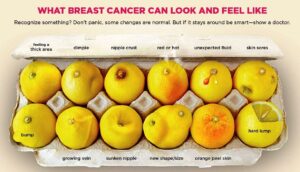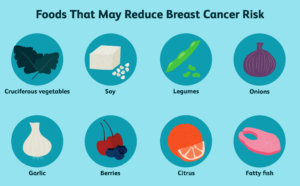Frequently Asked Questions about Breast Cancer
What is Breast Cancer?
Breast Cancer Surgeon in Thane
Breast cancer is cancer that forms in the breast. Breast cancer is the second leading cause of cancer-related deaths among women in world.
Regular check-ups and screening tests can find breast cancer at an earlier stage, when treatment works best. The most important action women can take is to have regular breast cancer screenings.
Should I get screened for breast cancer during COVID-19?
The COVID-19 pandemic caused many people to miss their mammograms. If you are due for a mammogram, do not wait. Call your health care provider to schedule your appointment as soon as you can. If you are having any symptoms of breast cancer, call your health care provider right away. Getting a mammogram regularly is the best way to find breast cancer early, when it may be easier to treat.
Health care providers are taking steps so that important health visits can happen safely. All staff and patients must wear masks and be screened for COVID-19 symptoms before going in the office. Equipment, exam rooms and dressing rooms are cleaned after each patient. Other safety steps may include socially distanced waiting rooms, on-line check in, and more time added between appointments.
Should I plan my mammogram around the COVID-19 Vaccine?
Talk to your health care provider about whether to schedule your screening mammogram before the first dose of any COVID-19 vaccine or 4-6 weeks after your final dose of vaccine. COVID-19 vaccines may cause swelling of lymph nodes in the armpit on the side of the body that the shot was given. This is normal and will go away over time. But swollen lymph nodes under the arm can also be a symptom of breast cancer and may show up on a mammogram. This may lead to more tests. Do not delay your mammogram if you are having any problems with your breasts or have breast cancer symptoms. See your health care provider as soon as possible about your concerns. Together you will decide when is the right time for your mammogram.


Who Gets Breast Cancer?
All women can get breast cancer. Although the causes of breast cancer are still unknown, there are some factors that may increase a woman’s chances of getting the disease:
- Getting older – Most women are diagnosed when they are 40 years of age or older
- Having a first menstrual period at a young age (younger than 12 years)
- Starting menopause at an older age (older than 55 years)
- Never giving birth, or giving birth to a first child after age 30
- Not breastfeeding
- Having had breast cancer or some non-cancerous breast diseases
- Having a close family member (parent, sibling, child) who has had breast cancer, especially at an early age
- Having certain gene mutations such as BRCA 1 or BRCA 2
- Being overweight or obese
- Drinking alcohol
- Not getting enough exercise
- Exposure to high levels of ionizing radiation to the chest area early in life
- Long-term use of hormone replacement therapy
Even if women have one or more of these risk factors, it does not mean they will get breast cancer. Also, many women who get breast cancer do not have any risk factors. This is why screening is important for all women.
Women with a personal or family history (close family relative) of breast cancer may want to consider genetic counseling to find out if they are at greater risk for getting the disease.
While very rare, it is possible for men to get breast cancer.
What are the Symptoms of Breast Cancer?
The most common sign of breast cancer is a new lump or mass. A mass that is painless, hard, and has irregular edges is more likely to be cancerous, but breast cancers can be tender, soft, or rounded. It is important that any new mass, lump, or change in your breast be checked by a health care provider.
Other possible signs of breast cancer that should be checked by a health care provider include:
- Swelling of all or part of a breast (even if no lump is felt)
- Irritation or dimpling of breast skin
- Breast or nipple pain
- Nipple retraction (when the nipple turns inward)
- Redness, scaliness, or thickening of the nipple or breast skin
- Nipple discharge other than breast milk
Sometimes breast cancer can spread to underarm lymph nodes and cause a lump or swelling there, even before a tumor in the breast tissue is large enough to be felt. You should tell your health care provider about any swelling in your lymph nodes.
How can I lower my chances of getting breast cancer?
Research is being done on ways to prevent breast cancer. Although there is no known way to completely prevent breast cancer, there are ways to lower your risk. These include:
- Drinking less alcohol
- Getting regular exercise
- Staying at a healthy weight
- Breastfeeding (exclusively breast feeding during your baby’s first 6 months, and continuing for 12 months or longer)
- Talking to your health care provider about hormone replacement therapy, if you take it
Regular check-ups and screening tests can find breast cancer at an earlier stage, when treatment works best. The most important action women can take is to have routine breast cancer screenings.
How can I get a Breast Cancer Screening?
Kevalya Hospital has arranged Breast Screening Mammography at a discounted price. Please contact Ms. Vaishali for details (9321800939)



